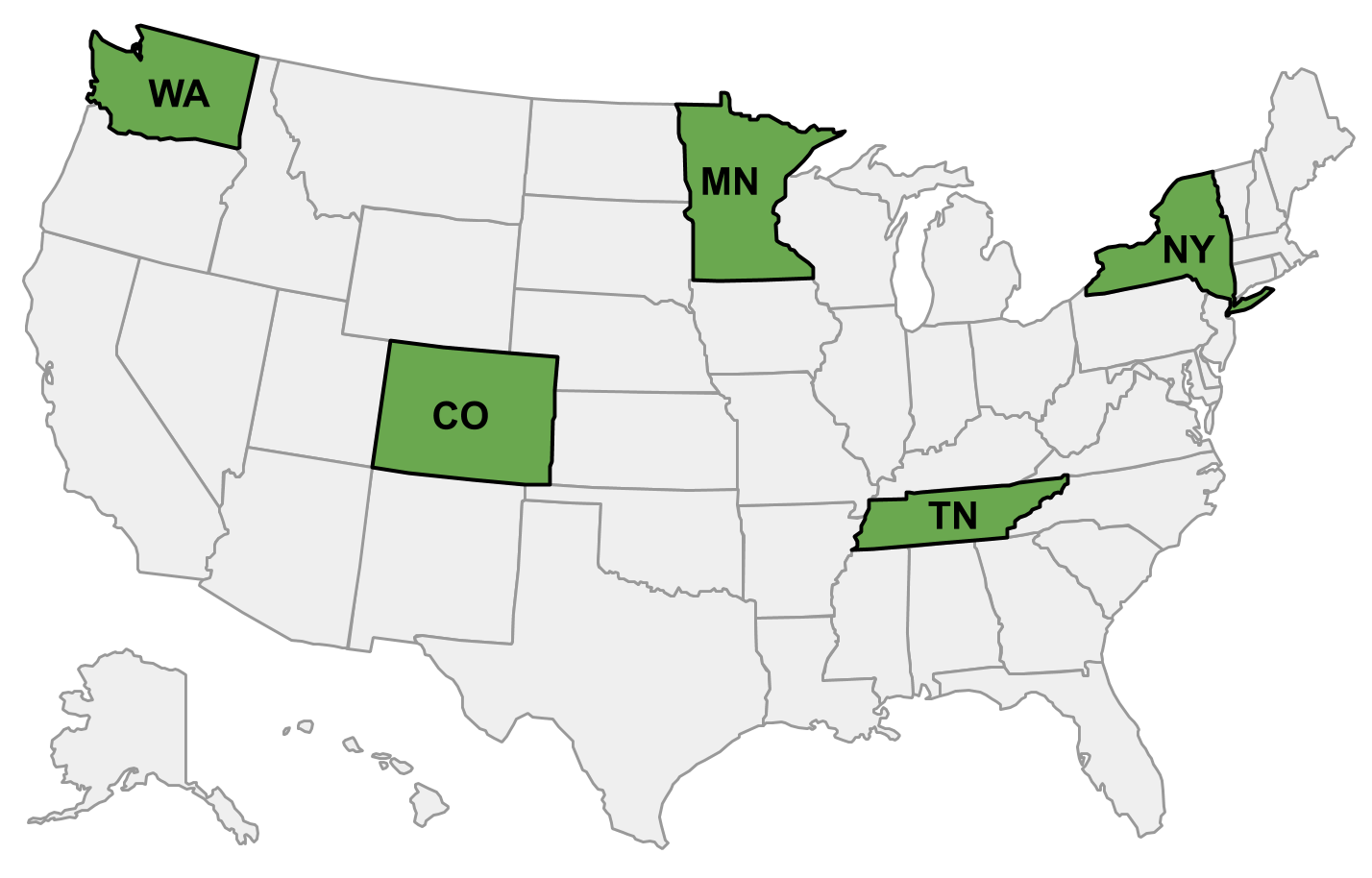About the Food Safety CoE Program
The Integrated Food Safety Centers of Excellence (Food Safety CoEs) build capacity in other health departments by developing and providing online and in-person resources, training, and assistance for enteric disease surveillance and outbreak investigations.
The program was established in 2012 under the authority of the Food Safety Modernization Act (FSMA), which was signed into law on January 4, 2011 to improve prevention, surveillance, and response to outbreaks of foodborne illness. In the legislation, CDC is charged with designating Food Safety CoEs at state health departments in partnership with academic institutions to identify and implement best practices in foodborne disease surveillance and to serve as a resource for public health professionals at state, local, and regional levels.

The current Centers are Colorado, Minnesota, New York, Tennessee, and Washington.
Products and Services
The Food Safety CoEs have developed a variety of tools and resources for state and local health departments. These products include training courses, guidance documents, and templates. Products from all the Food Safety CoEs are available at http://foodsafetycoe.org/.
In addition to the numerous online products created by the Food Safety CoEs, the Food Safety CoEs also assist state and local health departments on a one-on-one basis. Depending on your needs, one of the Food Safety CoEs may be able to visit you in-person or provide consultation remotely. Contact a Food Safety CoE to learn more about the services they offer.
Focus Areas
The Food Safety CoEs focus their activities on four areas:
- Strengthen & Improve foodborne illness surveillance, outbreak investigations, and information systems in other jurisdictions by providing consultations, developing tools/resources, and offering general assistance
- Evaluate & Analyze the timeliness and effectiveness of foodborne illness surveillance and outbreak response and perform program evaluation, quality improvement, and/or other special projects
- Train & Educate students and public health personnel in laboratory, epidemiological, and environmental investigation of foodborne illness
- Disseminate & Communicate information about available tools and resources for food safety and foodborne illness surveillance and outbreak response to local, state, and federal public health officials and other stakeholders